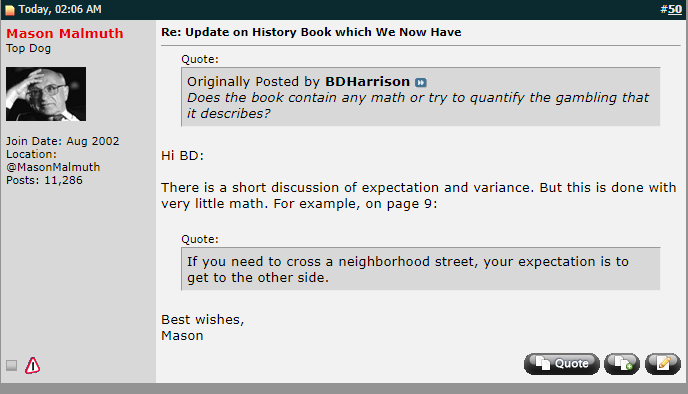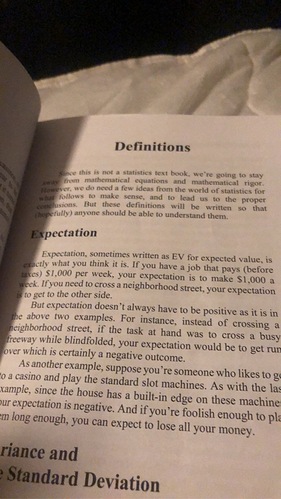Seagal isn’t doing a very good job hiding how fat he’s become.
In addition to other renaissance activities, Seagal continues to churn out bad action movies at a rate of approximately 2/year.
Also, today I learned “Above The Law 2” is “in development”. 
Stevie Ray Awful. Sweet licks, bro!
Should someone with Twitter contact Brokos about this thread? Or too risky?
I don’t think there is a bad Mad TV Sasso doing Seagal skit.
Even if people don’t want to specifically link to this thread, they can bring up points mentioned here or other grievances. Matt Glassman is a frequent guest on their podcast, so they are not anti-politics.
Just checked in over there.

@jmakin - is he trolling, or did you hold back that nugget from us?
ETA: Just read some more - OK, which one of you jokers started grilling him about Wikipedia last night? 
Lol. Ive said it many times but the fact these guys were the prominent poker authors 20 years ago tells you both how insanely good the games were and how dumb poker players were up until actually smart people started to play the game and apply actual math and game theory to it in the post UIGEA era.
These guys pretty much peaked out at hand selection and “If you have a flush draw on the flop you will get there approximately 35% of the time” kind of math.
Yeah that’s pretty much the impression I got, especially from some of the pseudo-intellectual babble Sklansky comes out with.
Why is a wizard statistician conflating expectation (colloquial term about beliefs) with expected value (mathematical operator)?
I can’t tell.
I suspect it’s his little joke, I find it hard to believe that’s actually in the book. Then again, I’ve never really had Mason down as the overly frolicsome type, so fuck knows!
Let’s face it, neither explanation is particularly flattering - either that’s in the book, or he tried to make a joke and it was fucking terrible.
I wonder how long it would have taken Sklansky and/or Malmuth to figure out the need to bet a king in the AKQ game #5 from The Mathematics of Poker, Chapter 15 and to figure out the solution to that game if they had to figure it out on their own.
I’d be more surprised if they ever bet the queen.
Wait, did you say “the need to bet a king”? Did you mean the queen?
Yes, they would bet a queen. They understand the need to bluff, so their attempted solution would include betting a queen. And they have written articles about times that they bluffed.
The AKQ Game #5 from Chen and Ankenman (and if you ever wanted to see a great satire of 2+2 style, check out Ankenman’s Crazy Pineapple for Advanced Players) is a version of the AKQ game with a full street of action with a spread-limit rule where it makes sense for the out-of-position player to make a preemptive bet with a king to mess with the other player’s ability to bluff with queens. NLHE:T&P has a section on betting to stop a bluff, so this is definitely a concept that Sklansky and Malmuth understand on some level. I just don’t know how long it would take them to figure the math of betting a king if they had to start from scratch without any help and didn’t know the answer involved betting a king. I have a feeling that Sklansky would get there before Malmuth.
Ah OK, sorry, not familiar with that version, thought you meant just the basic AKQ game.
He tends to throw expectation and variance around with imprecision. What does it mean to say a general had positive expectation in a battle? There are a lot of different ways that might be interpreted. Without a clearly-defined measure to operate on it’s meaningless as a mathematical concept. Like how would you even challenge the claim that General X had positive expectation in Battle Y?
